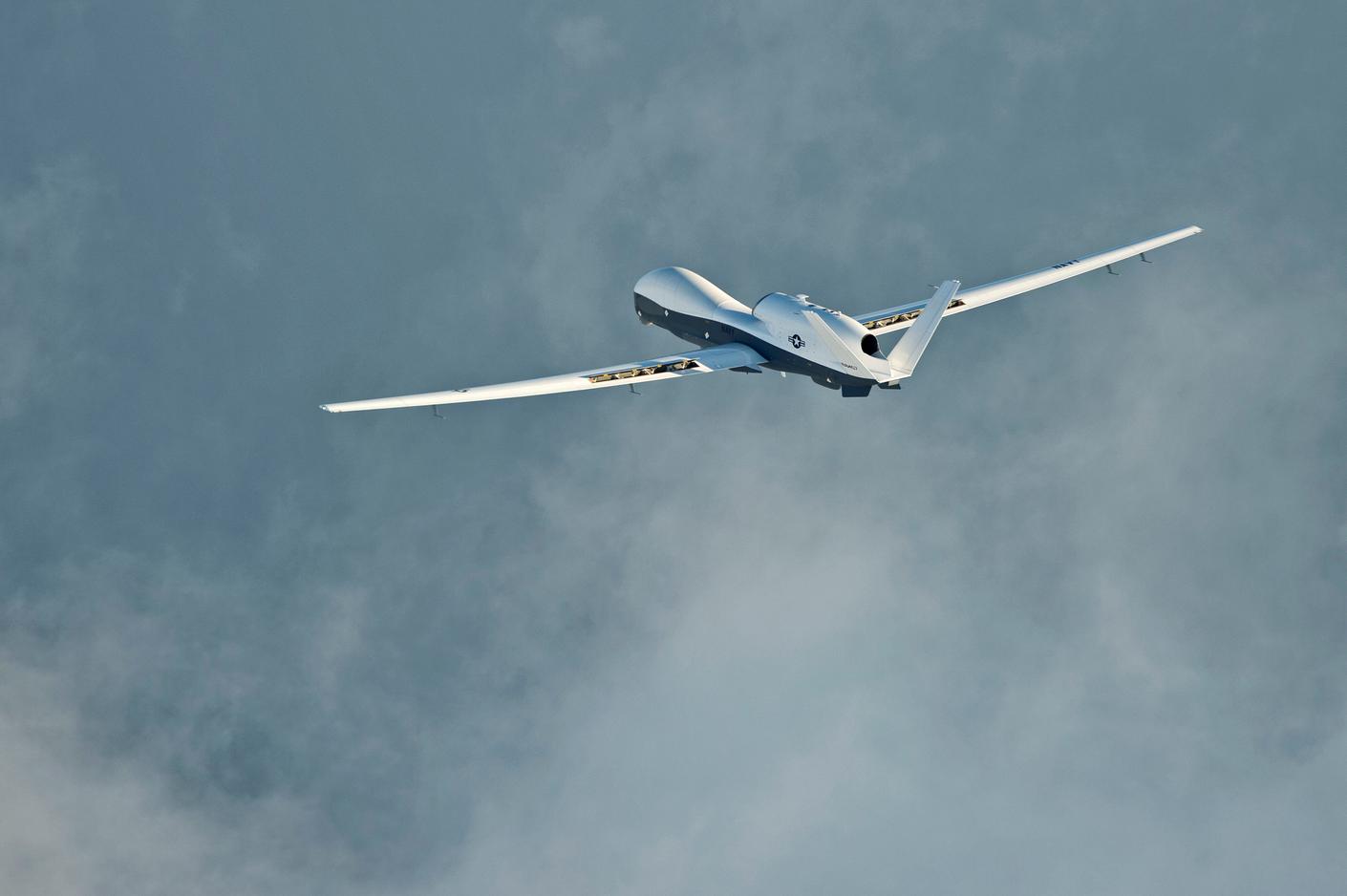DUBAI/WASHINGTON -- Iran on Thursday shot down a U.S. military drone that it said was flying over one of its southern provinces on the Gulf, increasing fears of military conflict as Washington seeks to isolate Tehran over its nuclear and regional activities.
It was the latest in an escalating spate of incidents in the Gulf region, a critical artery for global oil supplies, since mid-May including explosive strikes on six oil tankers as Tehran and Washington have slid toward confrontation.
Iran has denied involvement in any of the attacks, but global jitters about the risk of a wider Middle East war disrupting oil exports have triggered a jump in crude prices. They surged by more than $3 to above $63 a barrel on Thursday.
Tensions flared with the U.S. pullout last year from world powers’ 2015 nuclear accord with Iran and have worsened as Washington imposed fresh sanctions to throttle Tehran’s vital oil trade and Iran retaliated earlier this week with a threat to breach limits on its nuclear activities imposed by the deal.
Upping the ante, Washington said on Monday it would deploy about 1,000 more troops, along with Patriot missiles and manned and unmanned surveillance aircraft, to the Middle East on top of a 1,500-troop increase announced after the May tanker attacks.
Sepah News, the website of Iran’s elite Revolutionary Guards Corps (IRGC), said the “spy” drone was brought down over the southern Iranian province of Hormozgan, which is on the Gulf.
A U.S. official said the drone was a U.S. Navy MQ-4C Triton and that it had been shot down in international air space over the Strait of Hormuz, through which about a third of the world’s seaborne oil exits the Gulf..
A Revolutionary Guards statement said the drone’s identification transponder had been switched off “in violation of aviation rules and was moving in full secrecy” when it was downed, Iranian state broadcaster IRIB reported.
The Iranian Foreign Ministry condemned what it called a violation of Iranian air space by the drone and warned of the consequences of such “illegal and provocative” measures.
“Clear message" to U.S., Iran says
Brigadier General Hossein Salami, commander in chief of the Revolutionary Guards, warned against any aggression and said the drone’s downing carried a “clear message” to Iran’s arch-enemy.
“Our air space is our red line and Iran has always responded and will continue to respond strongly to any country that violates our air space,” Ali Shamkhani, secretary of the Supreme National Security Council, told Iran’s Tasnim news agency.
The MQ-4C Triton’s manufacturer, Northrop Grumman, says on its website that the Triton can fly for over 24 hours at a time at altitudes higher than 10 miles (16 km), with an operational range of 8,200 nautical miles.
The U.S. sanctions net draped over Iran, designed to reduce its lifeblood oil exports to zero and sever it from the dollar-dominated global financial system, have wrought severe damage to Iran’s economy.
U.S. President Donald Trump has dispatched forces including aircraft carriers, B-52 bombers and troops to the Middle East over the past few weeks. Iran said last week that it was responsible for the security of the Strait of Hormuz, calling on American forces to leave the Gulf.
Nuclear accord unraveling
Tehran has also said it will suspend compliance with the nuclear deal’s curbs on its uranium enrichment, meant to block any pathway to nuclear weapons capability, and threatened to disrupt oil shipments through the Strait of Hormuz.
Iran’s clerical rulers have rejected as “warmongering” allegations by the United States and its regional ally Saudi Arabia that Tehran was behind the tanker attacks.
But Trump and Iran’s top authority, Shi’ite clerical Supreme leader Ayatollah Ali Khamenei, have both said they have no interest in starting a war.
Heightened tension between Iran and the United States have fanned fears of increasing conflict in countries where Iran and its Gulf Arab regional rivals have been locked in proxy battles for predominance in the Middle East.
Trump says the 2015 nuclear accord signed by his predecessor Barack Obama did not do enough to curb Iranian interventions in other Middle East affairs or curb its ballistic missile program.
The Islamic Republic says its development of ballistic missiles and its regional activities are defensive in nature.
Tehran said on Monday it would breach uranium enrichment limits in 10 days, but added that European signatories still had time to save the nuclear deal.
Iran has rejected Trump’s call to enter talks covering nuclear, missile and other security disputes unless Washington returns to the 2015 deal that lifted global sanctions on Tehran.
Saudi Arabia has also accused Iran of supplying Yemen’s Iran-aligned Houthi movement with missiles and drones used in attacks on Saudi oil pumping stations in May and on a civilian Saudi airport earlier this month.
On Thursday, the Saudi-led coalition battling the Houthis in Yemen said a projectile landed near a desalination plant in the Saudi province of Jizan, after Houthi-run Masirah TV said the group had fired a missile at a power plant there.



















































